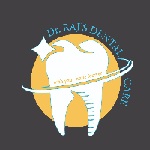Oral medicine and oral pathology is a special branch of dentistry that deals with diagnosing, treating, and managing oral, maxillofacial, and temporomandibular diseases and disorders, including dental management of patients with medical complications.
The primary diagnosis is done through visual examination by the dentist. Blood testing may be prescribed if the ulcer seems to be caused by a virus or mineral deficiency.
While mouth ulcers get healed on their own, some that are serious may require treatment. The treatment includes:
- Applying antiseptic gels
- Regularly rinse your mouth with slightly warm salted water
- Use alcohol–free mouthwash twice daily or as prescribed by professional
- Prescribing nutritional supplements like Zinc, Vitamin B-6, B-12, etc.
- In severe cases, the dentist may prescribe immunosuppressants that prevent your immune system from damaging healthy cells and tissues.
Orofacial pain affects any area of the face, particularly the jaw, ear, or cheek area. Various reasons could be the root cause of the pain like a tooth cavity, migraine, etc. If you feel the problem is due to the tooth, the dentist may perform Dental X-Ray to check for cavities, infections, impacted molars, or other dental problems.
After diagnosis, if there is any tooth cavity or infection then the dentist will prescribe the treatment accordingly. The filling of cavities, root canal treatment for infected teeth, dental restorations (such as crowns), and practicing good dental hygiene are all essential dental procedures.
Oral precancer can be diagnosed through various lab tests like:
- Biopsy: A biopsy involves the removal of a small sample of tissue or cells to be examined closely in the laboratory for cancer cells. Only a biopsy can confirm if an oral cavity or oropharyngeal cancer exists. The biopsy of a cancer sample is always required before treatment can be started.
- Magnetic resonance imaging (MRI): To determine if cancer is growing into the bone marrow or if there are a lot of fillings in the mouth that could distort the CT pictures, an MRI scan may be performed for oral cavity cancers.
Once you get the reports back and cancer has been detected, immediate treatment needs to be started. The treatment includes:
- Performing surgery to remove oral cancer and preserve your physical appearance while speaking and swallowing.
- Reconstruction surgery involves transferring tissue or bone from another area of the body to the oral cavity.
- Radiation therapy is frequently used after surgery to eliminate any cancer cells left in the mouth. The doctors may recommend radiation therapy over surgery if, radiation therapy has the potential to destroy an oral cancer tumor and preserve chewing, swallowing, and speaking functions.
A dentist examines the inside of your mouth to check for any red or white patches or sores that could indicate oral cancer. Dentists also feel the tissues in your mouth by using gloved hands to find lumps or other abnormalities. Another procedure through which cancer can be detected is a biopsy. If a suspicious spot is found, a sample of cells may be taken for laboratory testing by the dentist.
